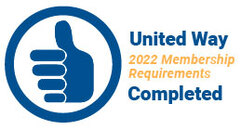|
There are several stages of recovery from drug addiction. After detox, when the active drug is eliminated from the person’s body and the person is medically stable, comes the next stage of recovery when other addiction issues are addressed.
There is much debate as to the definitions of substance abuse treatment and recovery. Some take a broad view of all the steps involved in overcoming addiction as part of recovery. Others delineate treatment as detox and what happens at a treatment/rehab center. They define recovery as what happens after the treatment program is complete and the person rejoins society. For the purpose of these articles, we will define recovery as the broad view: everything that happens when people leave addiction, beginning with detox and continuing for the rest of their lives. Treatment will be defined as the initial stage of recovery, where the physical dependence is eliminated and the initial stages of dealing with addiction are begun. There are many paths to recovery. There is no cookie cutter, one-size-fits-all method. What works for one person, may not work for another. Some are more successful in a residential or inpatient program. Some thrive in a faith-based program. Others prefer a more secular, cognitive-based approach. Group and individual therapy are available. Some find medically-assisted treatment as their best option. Counseling for the entire family may be necessary as they begin to rebuild trust and reestablish a healthy relationship with their loved one. Regardless of the path, relapse is often a part of the recovery process, showing the extreme difficulty and hard work required to overcome addiction. An important part of treatment and recovery is helping people learn to live without drugs. It can take months or years for the brain to recover and return to pre-addiction functioning. Those involved in substance abuse have to learn/relearn how to function without drugs. In recovery they must learn new ways to interact and develop support networks to replace drug-centered ones. Learning how to live a healthy lifestyle needs to be developed as drugs move from the center of their lives. Relapse prevention is another important component. Often there are multiple relapses before an individual is able to maintain recovery. This is not a sign of weakness or lack of willpower, but illustrates the power of addiction over the brain. Developing a plan to avoid temptation will decrease the likelihood of relapse. For many, becoming involved in a recovery community such as AA, NA, Celebrate Recovery, or Smart Recovery is essential for long term support and sobriety.
0 Comments
Your comment will be posted after it is approved.
Leave a Reply. |
AuthorLynn Saylor is the AmeriCorps member working with the United Against Opioid Abuse Initiative alongside the White County United Way. She is a major facilitator of the United Council on Opioids serving White County and a regular contributor to local media. Archives
October 2020
Categories
All
|

 RSS Feed
RSS Feed
